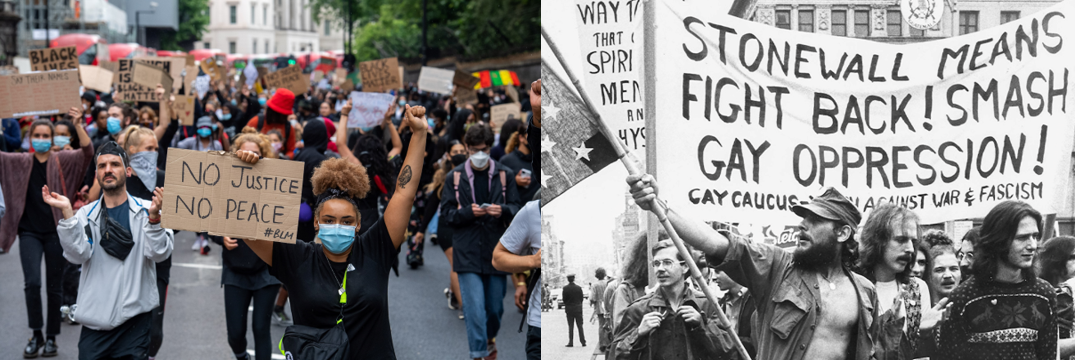Societal change has always required challenging the status quo. Today, we honor long-term survivors of HIV who are alive today, in part, because of the brave activism of the LGBTQ+ community that rose up in outrage against police brutality, injustice, and inequality. HIV Long-Term Survivors Day marks the day 39 years ago when the first cases were reported of what became the HIV/AIDS epidemic, and reminds us that powerful movements and courageous people have the power to save and improve lives.
Our voice gives us power. Today, as millions of people across the country protest the continued violence against Black Americans and catapult institutional racism to the top of public conversation, much can be learned from the exemplary activism demonstrated by HIV/AIDS activists over the last 40 years.
By inciting outrage, people locked arms to effect policy changes long needed by the gay community. This activism was also a catalyst for changes made at the FDA about how the safety and efficacy of a drug is evaluated, and created a pathway for compassionate use of medicines for those who had no other options. It demanded better, bigger innovations from the scientific community to treat HIV/AIDS, which went from a near-certain death sentence in the early 90’s, to a manageable, chronic disease for many in 2020.
Comparably, we are also in the midst of the COVID-19 global pandemic – a novel virus we know little about that threatens millions of lives in New York City, across America, and around the world. Sounds familiar, right? During the scramble to decode the virus, we’ve seen many medications being tested to treat the virus, and within just a few months, several therapies are in late stage development. We can all thank the activism of the HIV/AIDS community for the speed at which the pharmaceutical industry reacted to this latest epidemic.
Without powerful movements and courageous people, the HIV/AIDS crisis would likely have taken an even more deadly course. Health disparities and access to medicines remain imbalanced for people of color, but safe and effective medicines, and programs to help provide access to them, are now available to enable people to become long-term survivors of HIV.
HIV Long-Term Survivors Day is a moment to take notice of how far we have come; how far we have yet to go; and ensure we continue to address the needs of those living with HIV.
The Stonewall Uprising began 51 years ago in New York City when police officers raided a gay bar, the Stonewall Inn, and started hauling out gay, lesbian and transgender patrons. A small group, fed up with longstanding discrimination and harassment at the hands of law enforcement, finally shoved back and sparked a week of clashes that catalyzed the modern gay rights movement and the impetus for the first Pride parade. M Booth Health CEO Tim Bird reflected on how those events changed his life and why pride still matters today more than ever. HIV/AIDS continues to be a major public health crisis around the world. Lives depend on it.
Some of those marching on the streets across the country this week represent the most vulnerable among us, gay/queer people of color. They are marching like those before them at Stonewall. They are taking a stand against what they know is wrong and fighting injustice on multiple levels.
These issues do not live in a vacuum, and have long been hidden in the darkest corners of society, not unlike Stonewall. As a cis-gendered white woman, I have not endured the pain, but I can stand with the pained. They are heroes.
#NotOurFirstPandemic #HLTSAD


